Fifteen Minutes of Fame
Giuseppe Lupis
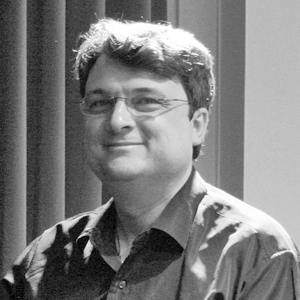
Pianist and composer Giuseppe Lupis enjoys more than twenty years of experience in the musical field, with frequent appearances in the United States, South America, and Europe. As composer, Lupis aims at restoring the prominence piano enjoyed in the 19th Century by featuring the peculiar characteristics of the instrument. In crafting his works, Lupis gives great consideration to the performer, the audience, and the musical language. Lupis’ works have been broadcast by Sky Classica TV, TV2000, Rai3 Lazio, Vatican Radio, and presented at the Berlin Philharmonic, Queen Elizabeth Theatre in Vancouver, Opera House in Copenhagen, Martha Argerich Presents Project in Buenos Aires, Argentina; in Rome, London, New York, Dallas, Chicago, Rio de Janeiro, Seoul, and across the United States, Canada, Italy, Poland, United Kingdom, Bulgaria, Kazakhstan, and South Korea. A former pupil of Aldo Ciccolini, Lupis holds a Doctoral degree from the University of Georgia and serves on the piano faculty at Grand Valley State University.
Concert Dates
- October 10, 2013 - Sherman Van Solkema Concert Hall, at Grand Valley State University, Allendale, Michigan
15 one-minute selections for Giuseppe Lupis
-
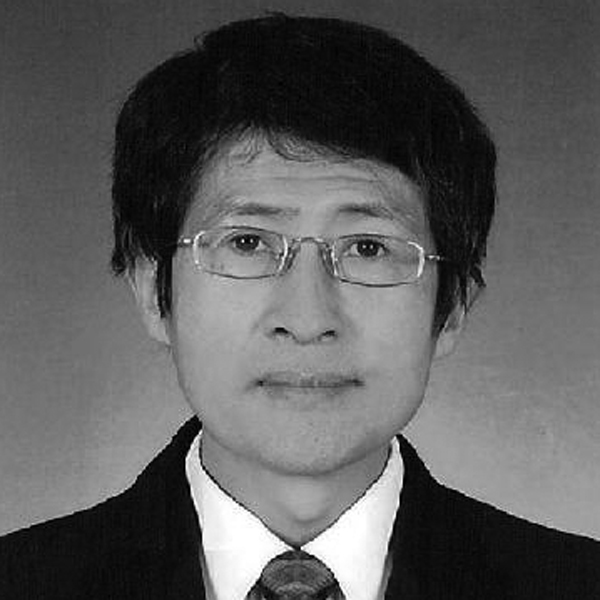
Happy Birthday Maestro Verdi
Joel Ahn
Joel Ahn is a Korean composer(born in 1957). He graduated from Univ. of North Texas with DMA in piano performance and Vienna Musikhochschule, Austria, with Diplom in composition. Ardently championing the 18-9th century tonal music, his music rejects modernism. Presently, he is active as a free-lancer.
Several popular tunes from Verdi's Opera - Caro Nome(Rigoletto) / Il Provenza & Brindisi(La Traviata) / Grand March(Aida) feature in the music. Quodlibet technique is applied in aligning these with the traditional Happy Birthday song. Polymeter and rhythm - 3/4, 4/4 and 6/8 - is utilized.
-
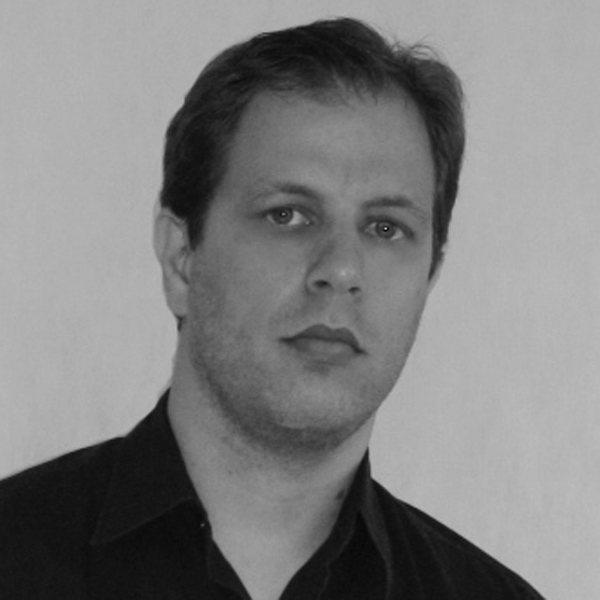
Floating Lines
Rodrigo Baggio
Rodrigo Baggio's music has been performed in many cities around the world such as São Paulo, Brasilia and Tatuí (Brazil), Paris (France), Quebec (Canada), Bremen (Germany), London (England), New York and Vermont (USA). As a performer, he has played concerts in different countries of the globe.
“Floating Lines” was written from a personal approach of a set of motifs taken from two important pieces of Giuseppe Verdi – the melodic motif of "La Donna è Mobile" (from Rigoletto) and the rhythmic motif of the "Capriccio for Bassoon and Orchestra”. The chord progression is based on suspended chords.
-
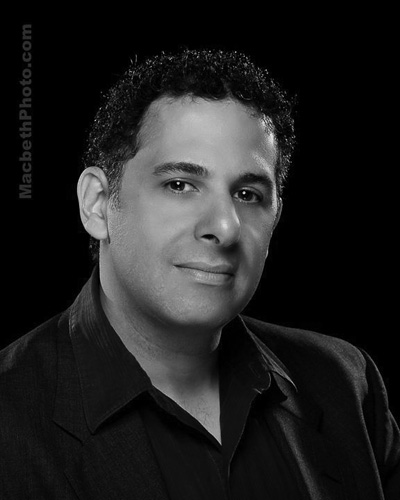
Valzer della Maga
Erik Branch
Erik Branch is a native of New York City, and received a BA and MA in Music (Composition) from Hunter College. He lives near Orlando, Florida, where he is active as a pianist, musical director, composer/arranger, opera chorister, and actor on stage and screen.
As an operatic tenor (and opera lover!), this call was irresistible. The “maga” is of course Ulrica, the fortuneteller of Ballo in Maschera, and my piece quotes and develops from her aria’s great closing phrase «Nulla, più nulla, ascondersi/ Al guardo mio potrà!» (“Nothing more can be hidden from my sight.”)
-
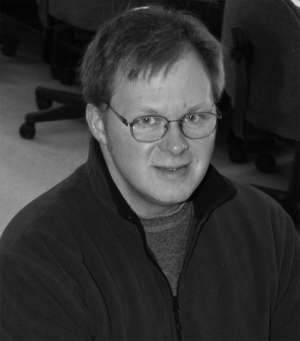
Falstaff
Scott Brickman
Scott Brickman (b. 1963) is Professor of Music and Education at the University of Maine at Fort Kent. His CD Winter and Construction was released in April 2012, on the Ravello label.
Falstaff is based on a Verdi’s enigmatic scale, transformed into a 12-tone row. This short work has a ternary form. It begins with a flourish, after which a waltz theme emerges. The opening flourish is transformed into a cadence to close the work. -
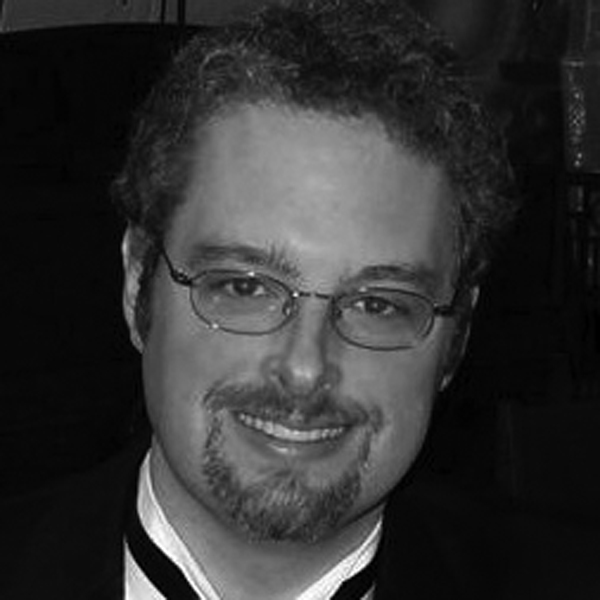
Happy Verday
John C. Griffin
John C. Griffin is a professor of music at Western Michigan University and Associate Director of Music at St. Catherine of Siena Church in Portage, Michigan. His compositions have been performed at numerous festivals and conferences, including College Music Society International Conferences in Croatia (2009) and South Korea (2011).
Happy Verday is composed in the style of Giuseppe Verdi and is imitative of three of his pieces specifically: "Brindisi" from La Traviata, the Anvil Chorus from Il Trovatore, and includes a familiar quote from Rigoletto. The composition as a whole is perhaps somewhat reminiscent of a familiar birthday song.
-

Dies Tempestatis
Monroe Golden
Monroe Golden is a composer from rural Alabama whose works often explore microtonal systems. Critics have described his compositions as "delightfully disorienting," "lovely, sumptuous, yet arcane,” and "irresistible music, full of wit and beauty.” There are three complete CDs of his music: A Still Subtler Spirit, Alabama Places, and Incongruity.
Dies Tempestatis is built upon a Dies Irae quotation from Verdi's Requiem, juxtaposed with an inverted, malformed rendering of the hymn Uncloudy Day. Pitch is centered on the 13th partial from the overtone series (symbolizing death) – with sum/difference partials 10 and 23, and harmonic relationships proximate to equal temperament.
-
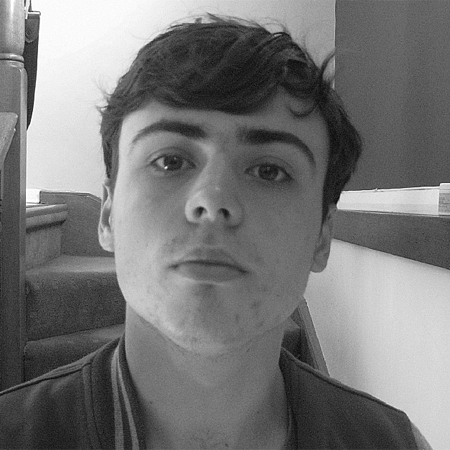
1840
Ben Herbert
My name is Ben Herbert and I am studying composition at the Sydney Conservatorium of Music. I regularly perform on piano and I have done an AmusA piano exam. Outside music I work at a childcare centre and enjoy outdoor activities and problem solving especially soccer and chess.
Verdi's two daughters and his wife all died between 1838 – 1840. Understandably his compositions suffered as a result of this traumatic exprience. However he continued to compose and many of his greatest compositions were written in the decade after 1842. My piece is representative of these two periods of his life.
-

Rigoletto Paraphrase
Jona Kümper
Jona Kümper, pianist and composer from Bochum, Germany was born in 1973. Under the auspices of Prof. von Arnim, Prof. Mishory and Prof. Tichman Kümper studied piano in Dortmund and Cologne and received a graduate recital in 2003.. In 2008 he received the Neuss Composition Award, in 2012 the third Price in the International Composition Competition Sofia, Bulgaria.
Rigoletto Paraphrase, composed in Mai 2013 for Guiseppe Lupis for the Fifteen Minutes of Fame Project, is a little piano solo Hommage to one of greatest composers of melodies – Guiseppe Verdi, stacking melodies from his Rigoletto sounding like a little Hommage to one of the greatest composers of harmony – Morten Feldman.
-

Album Leaf
Steven H Markowitz
Steven H Markowitz Studied Composing and Arranging at Dick Groves (Studio City California) in the mid 80's. He is an accomplished improviser at the piano keyboard, wherein he merges classical and jazz sonorities. Influences include Keith Jarrett, Eric Satie, and Sergei Prokofiev.
Written in honor of the 200th Birthday of Giuseppe Verdi, the piece is songful and embraces sonorities of the romantic era.
-

Otello Reflection
Marcus Maroney
Marcus Maroney studied composition and horn at The University of Texas at Austin and Yale School of Music. Commissions have come from such organizations as eighth blackbird , the Orchestra of St. Luke’s, and the Norfolk Chamber Music Festival. He is currently Associate Professor of Music at the University of Houston’s Moores School of Music.
"Otello Reflection" is a short piece for piano encompassing several motives from Verdi's opera. The opening chord, Iago's "Credo" melody, and the cor anglais, "Salce" motive and final chord progression are layered in a pensive, meditative sketch.
-
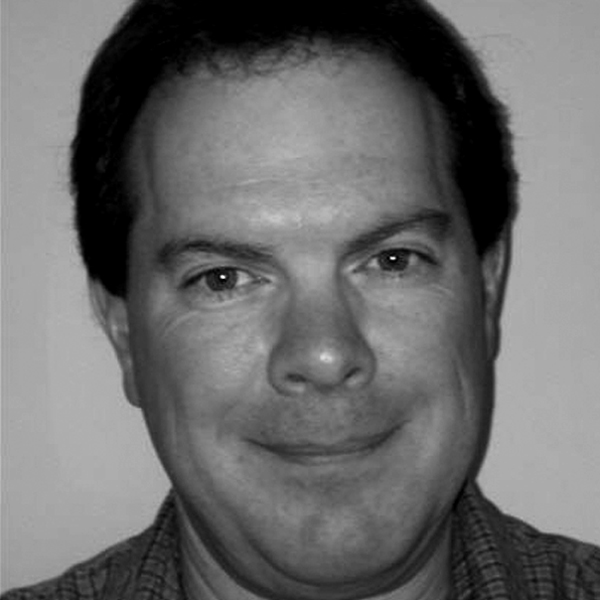
200th Birthday Wishes for Maestro Verdi
Jerry McCutcheon
Jerry McCutcheon is a composer from Annandale, NJ. He serves as a church musician at Clinton Presbyterian Church in Clinton, NJ and composes choral pieces, piano miniatures, and transcriptions of classical and hymn repertoire as well as non-church compositions. He earned a Bachelor of Science from Allegheny College.
200th Birthday Wishes for Maestro Verdi, dedicated to pianist Giuseppe Lupis, was written by Jerry McCutcheon and combines the tenor song La donna e mobile from Verdi’s Rigoletto with references in the bass to Happy Birthday. Hints of jazz are sprinkled throughout the composition which is timed at 57 seconds. .
-

Happy Birthday Maestro Verdi
Eurydice V. Osterman
Eurydice V. Osterman is a composer, author, and organist. She earned the Bachelor and Master of Music degrees from Andrews University in Berrien Springs, Michigan and the Doctor of Musical Arts degree from The University of Alabama, Tuscaloosa. She is currently professor of music at Oakwood University, Huntsville, Alabama.
Happy Birthday Maestro Verdi is based upon a motive from his opera, Rigoletto La Dona e mobile. Since it was written to celebrate his bicentennial, a quote from "Happy Birthday to You" is weaved into the piece.
-
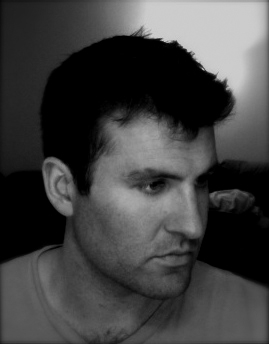
200
Andrew Smith
Boston based composer, Andrew Smith, earned his D.M.A from Boston University and his M.M. and B.M. from Southern Illinois University. He is currently on the faculty of Boston University’s School of Music, Keene State College and the Yamaha Music School in Lexington Massachusetts.
This short tribute to Giuseppe Verdi began by combining the motives from "Happy Birthday" and "La donna è mobile". They were first altered to fit a different mode and then re-harmonized. The resulting march was then disassembled creating the harmonic material that introduces the piece.
-
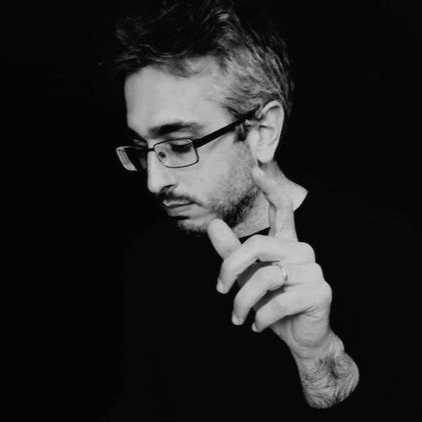
Notturno traviato
Aurelio Scotto
Young Italian composer, Aurelio Scotto’s music has been performed in Italy, Russia, Usa, Malta, Japan, Swizterland, Brazil, United Kingdom, and published by Wicky Music Editions, Taukay Music Editions, Master Symphony Editions, Ars Publica, Contemporary Music Center Milan, Universal Music Publishing Ricordi Edition. (www.aurelioscotto.it)
Notturno traviato Very special and funny birthday present!
-
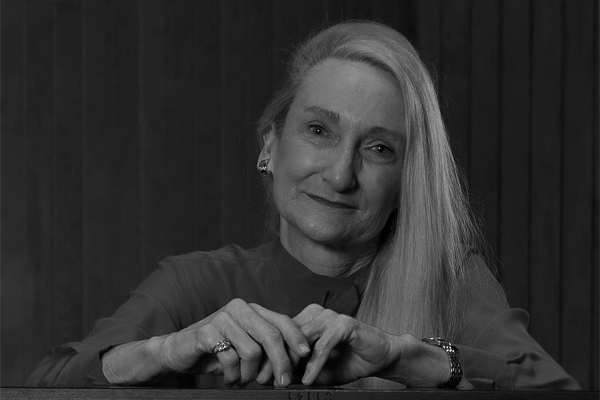
Après Margherita
Betty Wishart
The music of pianist/composer Betty Wishart has been performed in Europe and South Korea, and throughout the United States at various venues including conferences of the Society of Composers, International Alliance of Women in Music, Southeastern Composers' League, American Pen Women, and Delta Omicron. She teaches at Campbell University.
Après Margherita is my interpretation of Verdi's loss and longing after the death of his wife. The music was inspired by the Prelude to La Traviata.